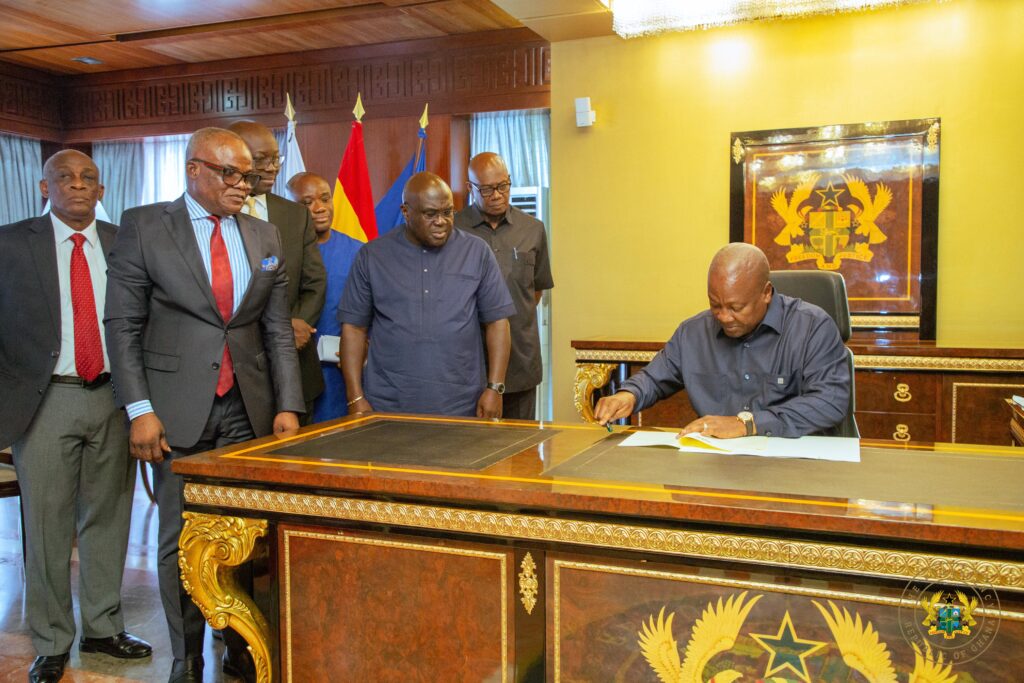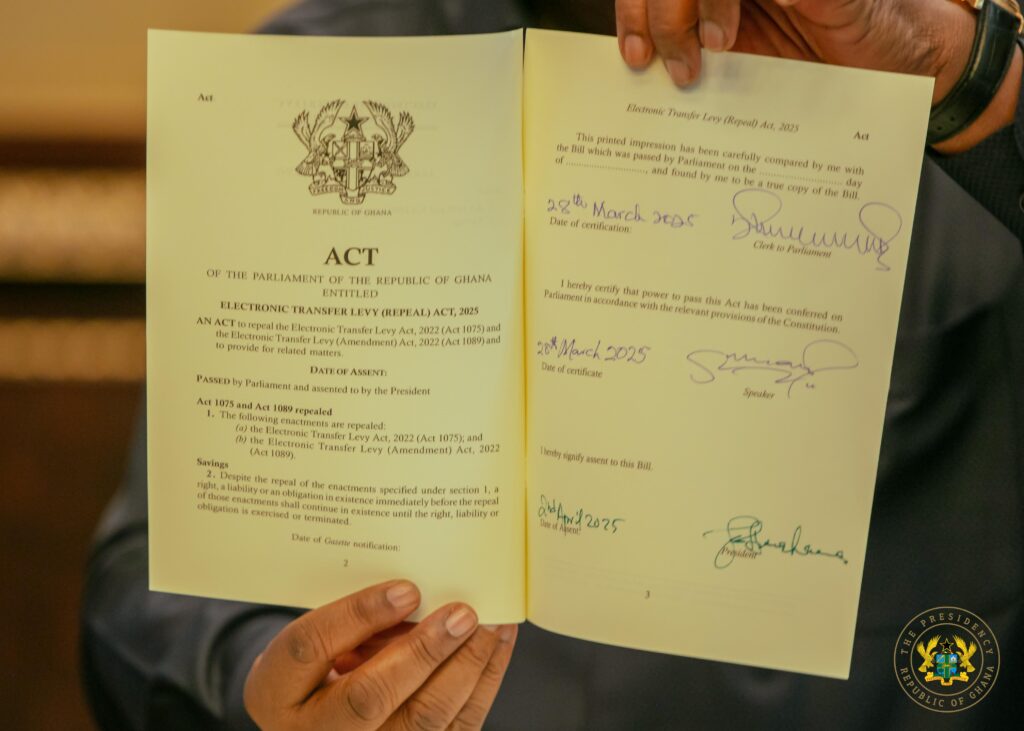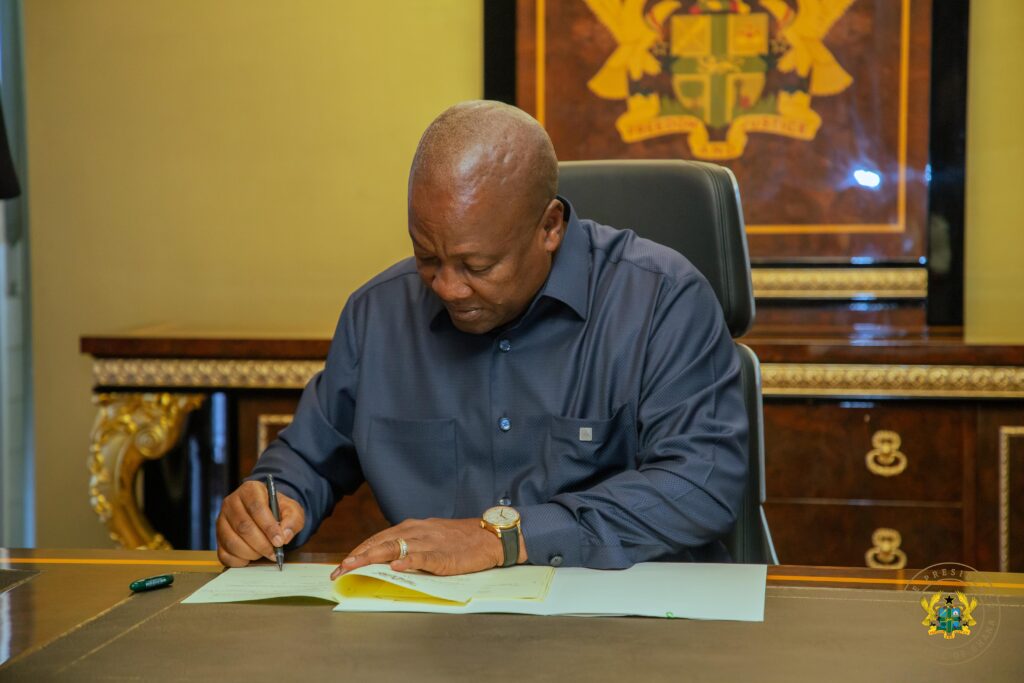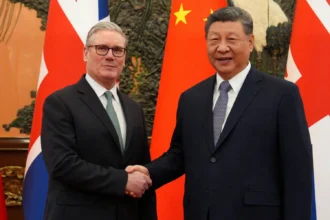Ghana’s President, John Dramani Mahama, has officially abolished several taxes, including the Electronic Transfer Levy (E-Levy), Betting Tax, and Emissions Tax. The decision follows his campaign promise to reduce the financial burden on Ghanaians.
On March 13, 2025, Finance Minister Dr. Cassiel Ato Forson introduced eight bills in Parliament aimed at repealing and amending various levies. Among them were the Electronic Transfer Levy (Repeal) Bill, 2025; Emissions Levy (Repeal) Bill, 2025; Income Tax (Amendment) Bill, 2025; and the Earmarked Funds Capping and Realignment (Amendment) Bill, 2025, among others
Following parliamentary approval on March 26, 2025, the government formally announced the tax repeals during a ceremony at the seat of government on April 2, 2025.


President Mahama emphasized that the removal of these taxes would stimulate economic growth and ease the financial strain on citizens. He noted that eliminating such levies aligns with his administration’s vision of reducing the cost of living and encouraging business expansion.
The National Democratic Congress (NDC) highlighted these tax cuts as a core part of its 2024 manifesto. The goal was to create a more favorable economic environment by removing taxes that had long been criticized as burdensome.
The E-Levy, introduced in 2022 by the previous New Patriotic Party (NPP) administration, imposed a 1.5% tax on electronic transactions. This included mobile money transfers, bank transactions, and online payments.
Since its implementation, the levy sparked widespread opposition, with many arguing that it disproportionately affected low-income earners and the unbanked population. Protesters demanded its repeal, citing concerns over double taxation and reduced financial inclusion.
The move to abolish the E-Levy has received overwhelming support, with citizens and business owners expressing relief. Many people feel the decision will boost digital financial transactions and economic growth.
More Related News
- Ghana Parliament Passes Gold Board Bill Amid Controversy
- NIB Intercepts Record 3.3-Tonne Cocaine Haul Worth Over $350M in Ghana









